This post may contain affiliate links and Corporette® may earn commissions for purchases made through links in this post. As an Amazon Associate, I earn from qualifying purchases.

We've talked about tax-advantaged savings before, but I actually just helped a friend get set up for a Roth IRA, so I thought I'd share some findings, and open discussion to readers — do you save money in a Roth IRA, IRA, 401K, or other tax-advantaged savings vehicle? How much do you save — and what do you invest in?
Psst: In honor of this series' original title, Tales from the Wallet — here's a wallet we love!

This post contains affiliate links and Corporette® may earn commissions for purchases made through links in this post. For more details see here. Thank you so much for your support!
How to Open a Roth IRA in 45 Minutes
In a time crunch? Here's how I'd spend my time…
15 minutes: Figure out which online broker you want. I've always done all of my investing online — my father started me a Schwab account as a graduation gift after college, and my husband and I started a Vanguard account together when we got married. They're both really easy to set up and maintain — I have a slight preference now for Vanguard because I feel like they have a wider selection of index funds and lifecycle funds, all with very low fees, but Schwab has them as well.
Two things of note if you're setting up a Roth IRA: Vanguard's minimum to open an account is $3,000, but Schwab's minimum is only $500. (I have no business affiliation with either of them — they're just what I'm familiar with personally. Readers, if you have other suggestions, please share.)
15 minutes: Fill out the paperwork. You can actually open an account online through both Vanguard and Schwab. For my friend, we downloaded a PDF, filled it out on the computer, printed it out, signed it, and slapped it in the mail.
5 minutes: Figure out how much to contribute to the Roth IRA. As a reminder: a) you can only contribute “earned income” (so if you're a student who made no money this year, you can't contribute anything). b) You can contribute a max of $6,000 (until you get older), and c) whether you meet the income limits — things start to get questionable (as of 2021) if you make $124,000 as a singleton, or $196,000 if you're married, filing jointly.
5 minutes: Pick which fund to invest in. Most online places offer a free consultant over the phone — ask about “low fee index funds” and see if they can direct you to a specific ticker symbol. In Vanguard the super popular ones are TKTK; in Schwab I'd look at SWPPX.
You actually have until the tax filing deadline to open a Roth IRA for this year, so there's no rush… but sometimes it's nice to get these things off your checklist by the end of the year.
Readers — do you contribute to a Roth IRA? In general, what age did you start saving for retirement — and do you wish you'd done it earlier?
These are some of our latest favorite financial books for beginners:
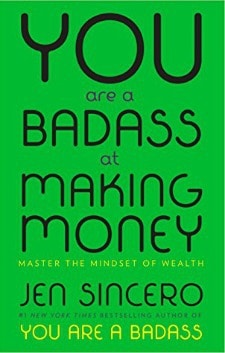
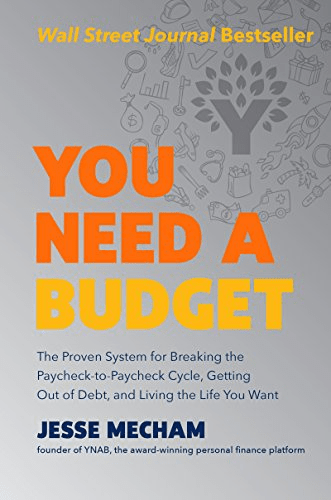
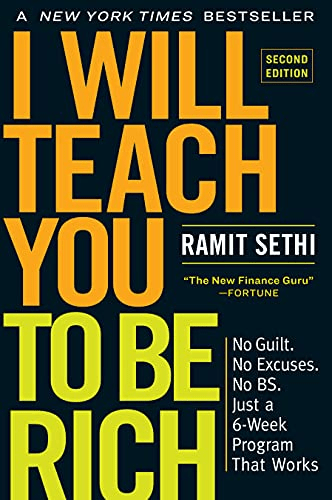
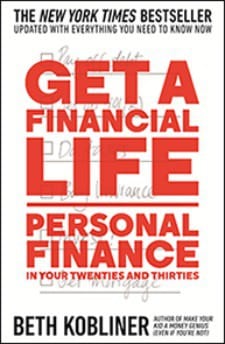
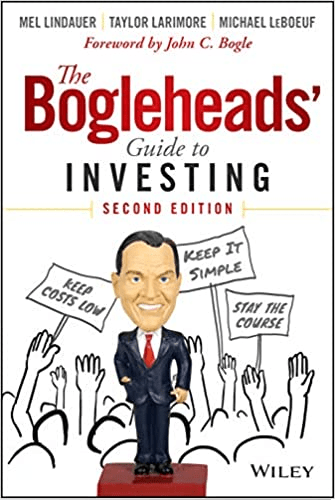
(P.S. What other topics would you guys like to discuss (or revisit) for our next Tales from the Wallet?)



b23
Is there a maximum income for a regular IRA? What is it?
Meat
Nope.
ANYONE CAN USE A ROTH
If your income is over the max, just open a regular IRA, put your money into a money market fund or other fund that is not going to change much in value over the course of a few days, and then immediately roll it into a Roth IRA.
In other words, you can’t OPEN a Roth if your income is over the threshold, but you can ROLL INTO a Roth regardless of your income.
That is all.
Granola
But does this mean I would have to have a Roth previously opened (that I can roll the IRA into)? So if I make over the income threshold and don’t have a Roth, I can’t use one?
ANYONE CAN USE A ROTH
You basically turn the account into a Roth. You don’t need a preexisting Roth to do so. The basic issue is that you can’t deposit directly into a Roth. You want to put money into the IRA and then convert it quickly so that the amount in the IRA doesn’t increase and then you owe income tax on the gain pre-conversion. There is plenty of info on the internet about how to do this.
Granola
Thanks! I have to look into this.
Miss A
Seriously? I can just open a regular IRA and “roll” that for 2012 into my old Roth? (I no longer qualify to contribute directly to a Roth).
Is this capped at the $5,000?
Brant
Yes, you can. For now (the regulations have changed a bit in the past few years). Be aware that you will have to pay taxes on the conversation.
BigLaw Refugee
Yes, this is legit. It was recommended to me by my financial advisor a couple of years ago and I did it through Schwab with no problem.
cc
Is that 5k max for the year? That seems really low. My work does not offer a 401k. I have an IRA from my old work with 10k in it. Suggestions on what to do? I have only been at my new job 1 month, but am getting very nervous about not contributing to my retirement.
Also whats the difference between roth and a regular ira?
cc
Sorry I actually have a roth ira. can I still contribute to this? Just put money into like a savings account at random intervals?
Ellen
My FATHER established an IRA for me along time ago, but I do NOT know FOR SURE what kind it is. He also contribueted money in it for me when I was NOT workeing, but NOW that I am at the firm, the manageing partner put’s some of my salary in a 401K, which I think is the same thing, so if you can get a 401K, then I would go for that.
Tomorow, I have to leave early to go to the resturant to prepare for the party. They STILL are useing the resturant for LUNCH, but we are takeing it over for DINNER and Drink’s also. The manageing partner told them today ONLEY to have “TOP SHELF” liquer there, but MYRNA says we NEED to be sure they are NOT just filling the bottel’s with cheep stuff. So she VOLUNEERED to come by early b/c she knows alot about wine and liquer, and she can tell if the bottels have the real stuff or cheep stuff.
She also will INSIST that we ONLEY have sealed bottel’s there, so that the resturant does not refill the bottels. I am so GLAD some times that I have peeople that know about these things, but I hope that GONEZALO would not stiff the manageing partner, b/c he is spending alot of money. I can NOT even say how much b/c it is to much! So if you don’t see me posteing, it is b/c I am goeing to be VERY busy tomorow with all of my cleint’s. I hope this all pay’s off for me and it is a BIG SUCESS!!!!! YAY!
Cornellian
not an accountant, but yeah, 5K is for the year, and you can put it in whenever you please.
FedTaxAtty
Traditional IRA is tax-deffered (i.e., you don’t pay taxes until you withdraw the income when you are over the age of 59 1/2 and you only pay taxes on the income earned in the fund). In some cases, you may get to deduct contributions to an IRA. A Roth IRA is tax-exempt (i.e. you pay no taxes at all when you withdraw the income when you are over the age of 59 1/2).
The Motley Fool gives a good description: http://www.fool.com/investing/general/step-3-roth-vs-traditional-ira.aspx.
When deciding between a traditional and a Roth (assuming you are eligible or rolling over), the trick is to “predict” your future tax bracket. If you are not personal finance savvy, I would suggest consulting a financial planning professional.
Sydney Bristow
Contributions to a traditional IRA are from pre-tax income while Roth IRA contributions are made from after-tax income, correct?
FedTaxAtty
Only some contributions to a traditional IRA are pretax. I forget what the requirements are, but I know that I deduct my husband’s traditional IRA contribution because his employer does not provide any retirement savings vehicles. Not tax advice – consult a professional to determine the tax consequences in your particular situation.
Wannabe Runner
Yes, $5K for the year. But you can have several IRAs. You can contribute more to your IRA, even if you had it for a former employer. It’s yours now. I have a Roth and a standard IRA, and I qualify for a SEP IRA (for the self-employed). If you want to invest more than $10K per year for retirement, you should probably talk to a financial advisor about the best options for you.
Lady NFS
I think it is $5,000 for the year, Roth or otherwise. (someone please tell me I’m wrong??) I agree that $5k seems really low. As someone who doesn’t have a work sponsored retirement plan, I am eager to hear about other options out there. For info: I am 28 and I put the max ($5k) into a traditional IRA. I started doing so when I started working for peanuts about 3 years ago and needed basically every write off I could get. I figured “a bird in the hand,” and take the write off now, rather than rely upon it later. As time has gone on and I’ve earned more money, I wanted to be able to save more for retirement in a retirement-related vehicle (rather than just regular savings or investments). I am still under the income threshold for a Roth, but when I went to fund one last year, Fidelity would not allow me to, saying that i already “maxed out” my contributions for the year. A service rep confirmed this on the phone. What do other ladies do in this situation if they want to save more than $5k without a work-sponsored retirement vehicle? I am certain that $5k a year, even if it grows, is not going to cut it…
BigLaw Refugee
Research low-tax investment options. Some funds are operated with taxes in mind and try to minimize the turnover and dividends that generate tax events for investors. I think that’s all you can do, if you don’t qualify for a SEP-IRA or similar. You can also look into high-deductible insurance plans with Health Savings Accounts – these allow tax free savings of about another $5K per year, and in theory you can keep it until you retire, making it another form of tax-advantaged savings – but the HSAs can have annual fees so I’m not sure it’s worth it. Just putting it out there….
Susan (edna_mode_nyc)
Nothing about IRAs from me, but I love that Alexander Wang wallet.
Cornellian
No one seems to be playing the game. I put about 20K in a roth IRA between ages of 19 and 25. Now I contribute ~8% of my income to a 401(K) without matching at my new employer. I’m 26. I don’t think I could have started saving earlier, but I could always be more aggressive with my non-retirement savings, of which I have maybe a month of living expenses (eek!).
b23
True, I missed that she asked those questions. I started saving at about 26 after law school. We save pretty aggressively now, but I do wish I had some of those years back. My husband’s residency didn’t have any savings vehicles set up (I wonder if this is common?) so he wasn’t able to do a 401k or anything until he was quite a bit older. That’s always irritated me.
FedTaxAtty
I contribute 8% to my TSP with agency matching. My husband and I each contribute $5k to our respective Roth/traditional IRAs. Our goal is to save 15% of our combined income yearly for retirement, not necessarily in retirement vehicles such as 401ks and IRAs. It’s a difficult goal to meet, especially with a mortgage and crushing student debt.
Still trying to recover the rainy day fund after buying a house a couple of months ago. We like to keep 4-6 months salary in liquid (or easily liquidated) assets.
Brant
I started saving for retirement at 22. On the advice of my SO (now DH), I contributed to my 401(k) up to the matching limits (6% + they matched 100%) and opened a Roth IRA. For the first few years, I was making peanuts, but I guess I managed to save some of those peanuts. DH made almost double my salary, but we lived off the exact same budget–and he saved the difference.
Then I went to grad school, and then DH went to grad school. We somehow managed to max out the IRAs those years, too, using savings. DH just started a new job, so this is the last year we will be able to contribute to our Roths (and we’ve got an absurdly low effective tax rate this year, thanks to tuition, student loan, and mortgage write-offs! woo!). I contribute 10% of my income to my employer Roth 401(k) and get a (non Roth) match, DH contributes 10% pre-tax, with no match.
We’re both 28 and I think we’re pretty ahead of our peers, but we decided we’d rather save early on, then have more flexibility to start saving for college (AAH!) in our 30s for our yet unborn kiddos.
L
Holy cow I’m way behind. I have contributed lightly to a previous employer’s 401k and am starting to set up my contributions (around 4-5%) for 2013. I’m 27. Clearly I need to get with it!
Do any of you ladies know of a good calculator that can show you how your paycheck will actually be impacted?
Cornellian
your 401k provider should have one on its site, but if not: http://www.bloomberg.com/personal-finance/calculators/401k/
locomotive
I’m 23 and have been working for one year. I max out my 401k each year (14% of base + bonus, 20% of base) with a 3k (4% of base) max match from employer. I try to save an additional 10-15% each month but that highly depends on other things (stress level –> therapy bills, family support that I voluntarily contribute to for a depressed sibling) and 80% of post-tax bonus. I’ve saved ~40k in the past year (~35% of total take home pay).
Geri
I’m 29. Apparently my parents put money into an IRA for me starting when I was 18, I don’t know how much (they stopped doing it a few years ago) and don’t count on that as my money. (Not even sure how legal what they did is, although I did work for them from time to time — both are self-employed.) I only started working in 2010. For 2010, 2011, and 2012, I maxed out my IRA. For 2011 and 2012, when I was (am) employed with a company that sponsors a 401(k), I max that out as well (in a Roth IRA — I am over the threshold so I roll/convert). My husband does the same, although he has been working for a few extra years. In addition, we put money into a bank savings account and various mutual funds, where we are saving for general costs (house, kids, remodeling, retirement, college, etc.).
eastbaybanker
I don’t do IRAs–keeping money on hand for a downpayment on a first home. I put 12% of my income to my 401k. I inch up the percentage whenever I get a raise.
LR
I started after college by contributing to my employer-provided 401(k). I put 10% of my salary in counting their (small) match. I think it needs to be more and I’m thinking about switching to put the minimum to get the full match in and opening a Roth IRA, but I haven’t done that yet. I didn’t know Schwab had a $500 minimum. I think I might have to open one after the holidays.
Susedna
Formerly known as Susan (edna mode blahbity blah)
There have been other Susans before me, and there will be other Susans after me. But edna… is a lot of typing.
“Susedna” is a funny compromise, a real delightful orthographic trainwreck. Special thanks to Ru for suggesting this one.
Fiona
I’m confused about IRA contributions if you have a 401(k) plan at work. My understanding is that if you have a 401(k) plan at work and your income exceeds a certain level ($68K for 2012, I believe), then you cannot deduct contributions to an IRA. What is the best thing to do in that case? Follow the plan PP noted above and roll money into a Roth IRA?
Anon CPA
Assuming that you make under $125K, I would just open a Roth IRA. Roth IRA contributions are never tax-deductible. The advantage is that you do not pay tax on the earnings.
Fiona
I should have specified – I make over $125K so I wouldn’t be able to do a Roth ordinarily. What would you do in that situation?
Geri
See above — an earlier commenter explained how to do a back-door Roth. And yes, if you can afford it, you should max out your 401k and IRA.
NoTrustFund
I started saving for a retirement right after college in a Roth and employer 401k. Starting early is the best thing I’ve done. Now that I’ve been saving for 10+ years (didn’t save during business school) I have healthy retirement savings and this gives me a lot of flexibity career wise. While I have yet to cut back on my savings, with two little ones it makes me feel a lot better knowing I have some wiggle room.
All of the accounts I control are at vanguard. I love them.
I’ve always tried to max out my 401k although it took me a few years of working to get to this point. I’ve been doing a lot if research lately on savings rate lately and it makes me upset that the recommended rate is 10-15%. At this rate it will take you 43-51 years to retire (great post on this on the mr money mustache blog. Search ‘the shockingly simple math behind early retirement’ I will try to post a link later when not on my phone). The 43 years isn’t so bad. But who wants to work for 51 years and then barely have enough for retirement? Especially if you have a good job and could probably save more.
Ok, off the soap box. But for those of you in your 20s the best thing you can do for your finances is to start saving at least 15% of your income now.
b23
What other vehicles should you be using if you max out your 401(k)? I guess I need to set up an IRA of some sort, but it looks like contributions to that are limited to $5,000 per year. So where should the rest of it go?
NoTrustFund
I used a direct Roth while I could (you can now roll over to a Roth regardless of income but talk to a tax expert before doing this) and now just put the rest in taxable accounts at Vanguard and 529 plans for our kids (also at vanguard but this is super state specific so do your research) which use after tax dollars and then grow tax free.
You can always contribute to a regular IRA but I have never done this. I did some research once and decided against it although I can’t remember why. Again, a good question for a tax expert.
Given that so few people are saving enough you’d think they could make the tax rules a little easier as to not be a deterrent!
b23
Even simpler question: When you say a tax expert, what do you mean? The CPA who did my taxes was pretty worthless. We tried to hire a financial planner last year, but he has the opposite problem of most: never contacts us, never tries to sell us anything even when we request it, etc.
I was thinking of just calling someone at Schwab and asking about all of this. Does that seem acceptable? Or is there a better place to get advice? I thought the financial planner would be it but he was a dud.
NoTrustFund
Our CPA is a bit of a dud on these types of things too.
So not sure- I feel a business opportunity out there somewhere!
After reading comments below I remember why I decided against opening an IRA. We have roll over IRAs from previous jobs and, when I looked into it a couple of years ago (using google as our CPA was not helpful) you had to keep roll over IRAs and traditional IRAs seperate and there were other accounting issues that seemed to make it more headache than it was worth.
Hel-lo
Call your local Edward Jones branch and ask to meet with their financial planner. I have used Edward Jones in several different locales and have found them all very helpful, and didn’t want me to buy extra things.
Roth 401(k) v. Regular 401(k)
My employer gives me the option to contribute to a Roth 401(k) and/or a regular 401(k). I choose to participate in the Roth 401(k) for a few reasons, but primarily for tax diversification purposes. I would love to hear the hive’s thoughts about the advantages and disadvantages of choosing one over the other. The Mint finance blog had a great article on this a few days back, which has caused me to rethink my strategy. I will link in a moment to avoid moderation.
Roth 401(k) v. Regular 401(k)
http://www.mint.com/blog/planning/the-difference-between-marginal-and-effective-tax-rates-1212/
(It addresses the issue toward the end of the article.)
Brant
It’s a tax game. DH was in school this year, so we have a crazy low tax rate. I am stuffing as much post-tax money into my retirement account as possible, since next year our take rate is going to skyrocket.
I’ll be switching to pre-tax next year, with the idea that my tax rate when I pull out the savings [retirement] will be lower.
anon
Can I tell you a story from the other end of a career? My husband and I always put the maximum into our IRAs, even when we had no money for anything else, and when I was able to open a 401K we did that as well. We are now about to retire, and we have a lot of money in those accounts. We are very glad that we started saving as early as we did.
lucy stone
Good for you!
Cornellian
On the even further other end, I actually have an uncle who saved aggressively his whole life and now is sort of wishing he had spent more in his 20s and 30s, since you can only do so much with money in your 70s (his words). But when I say aggressively, I really mean like 25-30% of paychecks at a job with a pension (I hear those used to exist!), so that’s not a problem with many people.
anonahol
We max out both (Roth and 401(k))- at first this scared me, because I sort of felt like I should have as much money as possible on hand in case of, I don’t know what. We have a very significant chunk in savings though (emergency + downpayment for a house) so I don’t know what I was scared of. Just seeing my paycheck so small kind of freaked me out. That was the hardest thing to get past for me.
We also both have traditional IRAs too from jobs that we’ve left and decided to roll the 401(k) over. We use Vanguard whenever possible, but have used everything depending on what our current company uses. I think Fidelity’s the worst, really high fees – felt like the expense ratios were really high even just for index funds (compared to Vanguard).
I am also able to use USAA because I’m a military brat, which is AWESOME and you should use if you are military. The customer service is amazing – though as I’m sure happens everywhere I think the planner I spoke with tried to push me towards their more actively managed funds. I have my Roth and a savings account there- the rate was really excellent at one point, but it’s really low right now of course. I think the selection of funds they offer is more limited (compared to Vanguard- they have like a whole book of them) but I was able to find everything I wanted- the selection was diverse enough.
TBK
My FIL was in the Marines and so we can use USAA, too, and totally agree! They have amazing customer service and great rates.
anon
On a related note, a guy with USAA car insurance hit me a few years ago, and USAA made the whole thing a pleasant experience — yes, pleasant. They answered the phone right away, were super nice, paid my claim in full, didn’t make me use one of their own places to estimate the cost, etc. It was amazing.
But I don’t think you can use it if just your grandfather was in the military. :(
anon
We have USAA because my DH’s grandfather was in the military. It’s worth checking it out even if you’re not sure if you’re eligible because they are such a great company.
Maddie Ross
Question about USAA – does your immediate relative have to have been a USAA member themselves, or just in the military? I’m very interested in USAA (have heard great stuff) and my FIL was active duty air force, but has now passed away and was not a USAA member himself before he died. Anyone know?
LR
Maddie – I looked into this because my father was in the Army. He never joined USAA while he was alive (if you call or go to their website, they can look veterans up by social security number to check). I’m not able to qualify for a lot of their services, although I think they allow anyone to open a checking account and use some other basics.
I have friends with grandparents who served who are members because all three generations of their family are USAA members. I’m very jealous and I highly encourage everyone to look into it. My SO’s father is also a veteran and I’ve mentioned to my SO before that he should ask him to join so he can look into insurance through them.
Samoyed
Several USAA services including checking + savings accounts recently became available to the general public – I’ve been using USAA since high school and they are so above board, consistent, and reliable.
Monica
What tool should I be using to save money for a down payment on a house? I assume not a regular savings, probably not a CD – what is the “best” mechanism for that?
KansasAnalyst
It depends on when you plan to purchase- I would look into the online CD’s such as Ally. Their rates are going to be higher (usually) when compared to a regular bank. The rates aren’t great right now though but you may be able to get 1% if you are looking at a year or more.
LR
Ally is my bank and they have a no-penalty CD (you lose the interest earned if you close the CD but there’s no possibility of owing anything, and you get your money back in 3-5 days). The interest rate is barely above their savings account rates, but I thought I’d test it out for a year and see if I’m comfortable setting money aside like that. My year’s almost up and I’m definitely planning to reinvest.
Fiona
How much time do you have before you buy? We have our downpayment money saved half in cash, and half in very diversified ETFs. The ETFs are making a much greater return than any savings accounts out there today. They are obviously not 100% safe and some of them have lost value (we have the money spread across about a dozen of them), but overall the return has been better than a savings account or a CD. As we get closer to buying, we’re going to start gradually moving the money from the ETFs into cash on good market days.
Sydney Bristow
Kat, this would make an interesting topic!
CW
I don’t contribute to a Roth IRA because of the income restrictions. and I don’t quite understand the benefit of contributing to a regular IRA and then converting it to a Roth IRA. Can someone explain it? Is it that you expect that your tax bracket will be higher when you retire, and therefore converting to the Roth IRA will make long-term financial sense?
CW
Oh, I should also add that I started saving for retirement with my first real job out of undergrad, but did not contribute a lot to my 401k (maybe 3-7%, I can’t remember the exact amount, but it was always enough to get matching). I took a 3 years hiatus because of law school, and then came out and starting maxing out my 401k. This is the first year my DH will max out his 401k too, but he didn’t take any years away from the job so he has a good amount of money accumulated. I don’t do anything else in terms of retirement savings vehicles because I’m not really sure there are any good methods of saving out there (tax-wise, for us) beyond putting cash into the market (through some sort of Vanguard fund).
Right now our goal is to fund a 6-month emergency fund in cash before we put any additional money into retirement savings because we want to have access to liquid assets. After that we’ll need to reassess our options, but I think we’ll be going with the Vanguard fund.
Ms. Van Squigglebottoms
Investments are on my mind after reading this article in the Post: http://www.washingtonpost.com/national/sandy-hook-massacre-spurs-debate-on-gun-companies-laws/2012/12/18/7a71adc4-4938-11e2-820e-17eefac2f939_story.html
This weekend, I’m sitting down with my mutual funds to figure out if I invest in gun manufacture.
lucy stone
Does anyone else struggle with feeling like they will never save enough for retirement? I save about 25% of my income and my husband saves about 10% of his, but I just wonder if it will be enough.
CW
I always feel like this. I’ve been having intermittent mini freakouts over the past few weeks when I think about trying to simultaneously enjoy my life (characterized by dining out and travel), save for retirement, pay down my student loans, have kids, pay for childcare and education, and at some point maybe buy a house.
The only thing that I can think of that helps (sort of), is that my friend who is a financial advisor says that the years of 30s-high 40s/low 50s are the years where people save the least because they’re doing all of these things too, but that many people make it back up.
Bette
Yes, this totally freaks me out. I save aggressively but the numbers that people throw out there that you need to have for retirement just seem so astronomical. I think you need to sock away all you can and trust in the powers of compounding interest.
Anon
I always have a hard time predicting what we’ll need and so figuring out what to save now. Our income has been all over the map (e.g., I started at BigLaw, then went to government, now in a whole different area) and most online calculators expect that you’ll start at $X and make 5% or so more each year after that. I have some money from a Roth IRA from right after college plus I then maxed out my 401k (or equivalent) each year after that but put in $0 while in law school, and now am just maxing out the amount my employer matches (4%). My husband is self-employed in a new company and has no income this year; my income is about half what it should be for various reasons and so we figure it’s better to have cash on hand this year and next, then go back to saving seriously when our income is back to normal (probably close to triple what it is right now — I hope!).
Kontraktor
We use USAA/are a military family, so I try to have as much in Roth as possible (since we are young and often pay low tax rates due to my husband’s deployments). We max out his (traditional) TSP (and are wondering if we should re-start a Roth TSP for him, now that there is that option, but I think we will probably avoid just due to the amount already in the regular TSP). We also max out 2 Roth IRAs, one for him/one for me. Mine includes the rollover money from my last 401k, which was a Roth. Now at my current job, I only can get a traditional 401k (I would prefer a Roth), so we put 6% in that to get an equal employer match (I’ll be vested after 2 years). So, we are almost maxing out everything we can, but can’t/don’t… for one reason, we don’t want so much money in pre-tax retirement savings. For another, we want to build up liquid savings for a house down payment so we funnel a lot of extra savings money towards that. I agree that I wonder if we will have ‘enough ‘for retirement, although right now hubs is planning for a 20 year military career with the motivation of eventually drawing a pension, so that helps. But, who knows. At least we are starting savings early and have about a 50/50 split in terms of pre and post tax money, so I think it’s probably okay for now.
Soleil
Is there any reason to contribute to a Roth IRA if you are not maxing out your 401k at work? From what I have read, the Roth IRA (1) allows you to take out your contributions (but not any earnings) if you need to without penalties or taxes, and (2) has some tax benefits to your decedents if you die before you retire. Anything else I should be thinking about? This post is so timely, I am just making these decisions.
AttiredAttorney
I opened my Roth IRA at 22, and I have faithfully maxed it out each year. Also at 22, I started contributing 10% of my income to my work 401(K), including the employer match. As a state government employee, I also qualify for a small defined benefit/pension plan once I hit ten years of service.
401K alternatives
I have always maxed out my 401K (roth) plus an IRA (traditional, because I make over $125K). Last year, for the first time, I had about half of my 401K contributions returned to me to bring my company’s plan back in compliance – “high earners” can’t contribute more to the plan than other earners.
Does anyone else have this problem and what have you done about it? When I was contributing the full amount to my 401K I still felt it wasn’t enough (I think I need to be saving at least half of my posttax income, considering that I expect to be retired for as long as I work), and so it’s even worse now.
Naomi
You could use the money to buy a house (or pay down your mortgage if you already have one and there aren’t penalties). You’d get the tax credit for mortgage interest, and when you retire you could either have a house with a paid-off mortgage (lower your expenses) or get a reverse mortgage if you need income.
Anastasia
My dad told me to start a Roth IRA when I got my first job at 16 (thanks Dad!). I didn’t put much in it those first couple of years, but when I joined the military at 18, I maxed it out with automatic monthly deposits every year. Now that I’m in the private sector, my household income is too high for direct contributions to a Roth (although I maaaaay be able to get it below the threshold with deductions, in which case DH and I will both make Roth contributions as well), but I do max out my 401k. I’m almost 30, and in general, I feel pretty good about my retirement savings, and I am really, really glad I started young.
I have a traditional IRA, too, because I rolled over 401k plans from previous employers. I plan to eventually convert it to a Roth, but I will likely take significant time off for education or kids within the next 5 years, so my idea is to wait to convert until a year I’m in a lower tax bracket. I don’t actually know whether that’s sound planning or not; it’s on my list of financial planner/tax advisor questions when I ever get around to talking with one… I’ve looked into it a bit on my own, but even though I am generally very DIY when it comes to financial planning, I’m not 100% confident with this one.
Anastasia
Oh, and I will add that all my accounts are TD Ameritrade, and I’ve been generally happy with the service. I started out with just my non-retirement investment account there, and when I needed a rollover and wanted to get my Roth out of the hands of a full-service company (I was young and didn’t know better), I figured it was smart to keep everything in one place. I’ve considered moving some things to Vanguard (for their index funds), but I haven’t actually done it yet.
Pension Plans
My husband and I both have company pension plans in which we are both fully vested. I’ve been with my employer for 10 years, he 5. I don’t count this income (like I don’t count Social Security) in my retirement planning, and we both save 5-10% of our respective incomes in individual 401Ks which we each get 5% company matches.
I would like to open a Roth IRA while we are still under the income level do be able to do so.
We are 39 and 33, so still a lot of time to go before retirement.
Question – Are there any others out there who do have pensions and how does this impact your savings strategy? I don’t plan on staying with my company for my entire career (to get the max payout), although perhaps I should value the pension plan more when considering new employment opportunities? I would hate to let this weigh on my decisions and then be let go and lose it. Many at my company have been able to retire comfortably in their mid 50’s and I would assume the pension plays into this.
I don’t see a lot of advice on pensions as they aren’t that common anymore and I will admit I am not even clear if it is legally guaranteed to me (I believe at least part of it is). How is it that so many get pensions cut, such as the airline workers? Is this a union related vote?
Pension Plans
oops – we are 29 and 33 actually.
Cornellian
http://www.friedfrank.com/sitefiles/fffiles/060503_bleb_lewis.pdf is a pretty in-depth answer.
lucy stone
I have a government pension and wonder this too – I do count it towards what I am saving.
Digby
Pensions get cut when employers go bankrupt. The PBGC (a federal agency) takes over the pension plans and will only pay benefits up to PBGC maximums. They don’t guarantee certain forms of early retirement supplements that many plans offer to retirees under Social Security age, and which often make up a large part of the pension benefits. At my former employer, a typical early retiree benefit was probably 65% early retirement supp, so when the company went bankrupt, some people took huge hits in their monthly benefits. It’s not a union-related vote – this employer had both union and non-union pension plans, and all plans went to the PBGC and all plans had these same cuts in benefits.
Janie
I would love to learn more about mutual funds and target date funds! I’ve been trying to decide if a) it’s a good option for investing beyond a 401k and a Roth IRA and b) whether I want to go with Fidelity or Vanguard. What should I be looking for? How do I know if it’s a good idea, especially after reading a lot of articles about how target date funds can be too high risk as you get closer to retirement?
Thanks!
No Problem
I just converted my traditional IRA into a Roth IRA at Vanguard. I’ve been meaning to do this for awhile and this post was the kick in the pants I needed! It took about 15 minutes to do via the Vanguard website.
I’m still not sure I understand the tax withholding stuff, but I decided to have the taxes withheld (10%). The IRA only had ~$3,500 in it, so I figure I’m not exactly screwed from a tax perspective if that was the wrong decision because the amout subject to taxes is so small.
Anonymous
1. You can generally open an IRA at most investment companies for much less than the stated minimums IF you agree to monthly funding – which is usually $50-100 month pulled automatically out of the bank account you attach.
2. There are a lot of assumptions, half-truths, truths particular to individual situations and flat out wrong information on this section already. I’m in the industry and my comments could be misconstrued as advice, so I’m hesitant to point it out specifically and correct it (also why I’m anonymous). I commend ALL of you for wanting to prepare for retirement. I suggest working with a tax specialist/financial planner or independant of that – a representative of the company you’ve selected to work with and ASK questions specific to your situation. A lot of times, information is free from investment companies – call them, tell them what you want to do, where your hesitations are, let them educate you – feel free to call other companies if you feel you’re not getting your questions answered, or you’re getting sales pressured, or you’re not comfortable with the information provided. Google if something doesn’t sound right, IRS, DOL are all good sites. Fidelity has a fantastic publically available 401k site. Morningstar has a ton of education on their website. See if your company sponsored site has an education component.
Carly
If I already have a Roth (opened when I was about 16), can I make contributions to it now, even though I am above the income threshold? One of the comments about ira conversion makes it sound like contributions may be okay, but you just can’t open a new one if you are over 125k?
Naomi
I don’t think you can make direct contributions. The earlier comment was saying that you can put money in a regular IRA and convert it into a Roth, I think? You’d have to pay taxes on any income that accrued on the funds before you converted it.
Heidi
My perspective, after 20 years in the work world, 1 marriage, 1 mortgage and 1 kid:
– You cannot start saving soon enough.
– You cannot save too much. (Find an online retirement savings calculator and do the math. It will shock and depress you. And don’t assume Social Security will still be around when you retire.)
– A good tax accountant is worth his/her weight in gold. Find one and get good, accurate advice about investment vehicles with tax implications, like Roth IRAs. When the IRS is involved, you don’t want to guess wrong.
– So is a good financial planner. In a perfect world, both of these people work together as part of your money team. Find one who is fee-based; that way their recommendations are not financially tied to the portfolio options they suggest.
Marie
I was able to open a Roth IRA with Vanguard with only $1,000 by choosing their STAR fund. It is a decent mix though on the conservative side. Once you reach $3,000 in your Roth IRA, you can transfer it into a different fund of your choice.
I had always heard good things about Vanguard (especially their low costs compared to other companies) and their customer service is 5 stars.
The max contribution limit increases in 2013 to $5,500 for IRAs.
Vernos
I can tell this is very important for the contemporary secondary education. Each learner seeks for a company that can make a presentation of his own views on that in time and will do it correctly. The best made itself a proclaimed helping center for youngsters with a motivation to study further. Every order is done and delivered in the best form you could imagine it to be done.